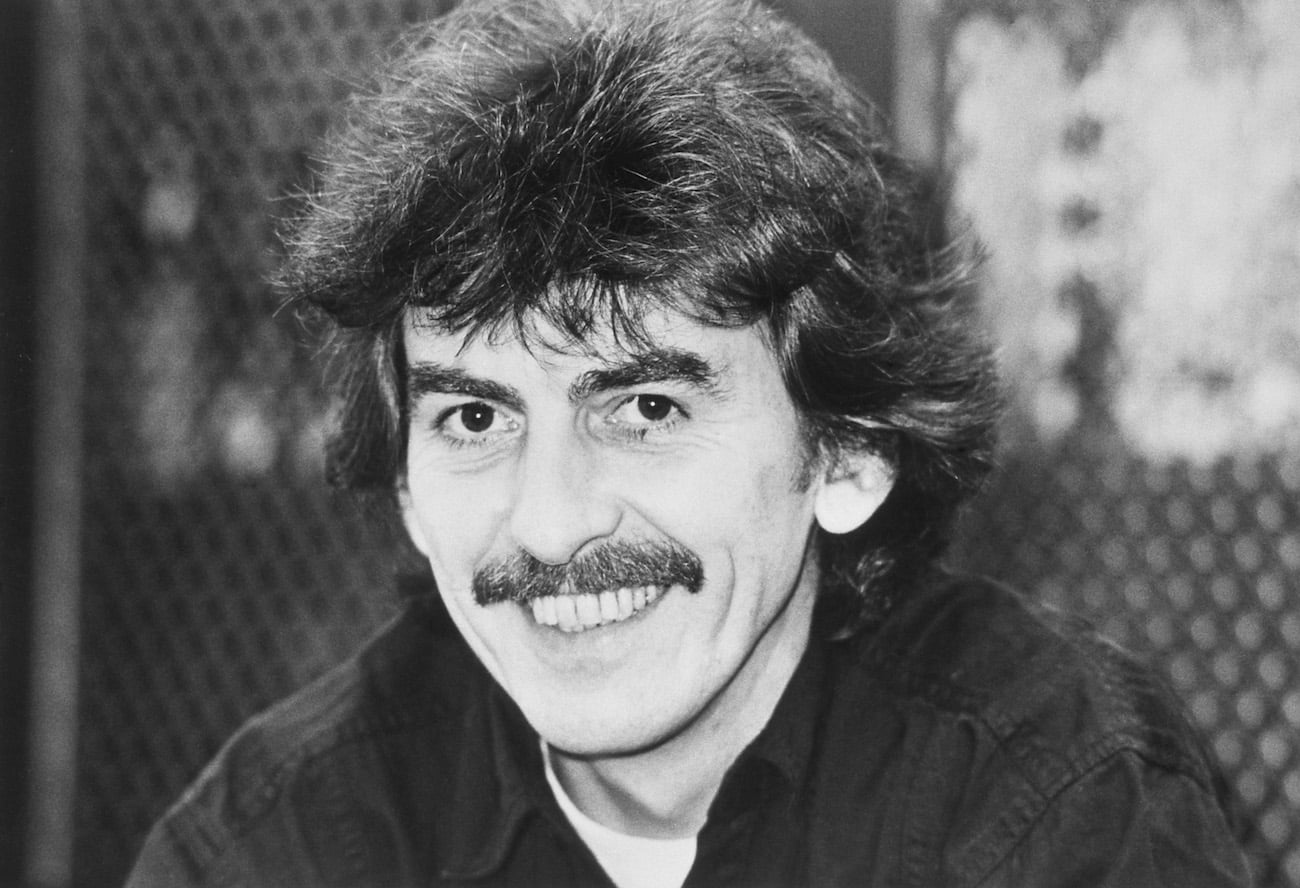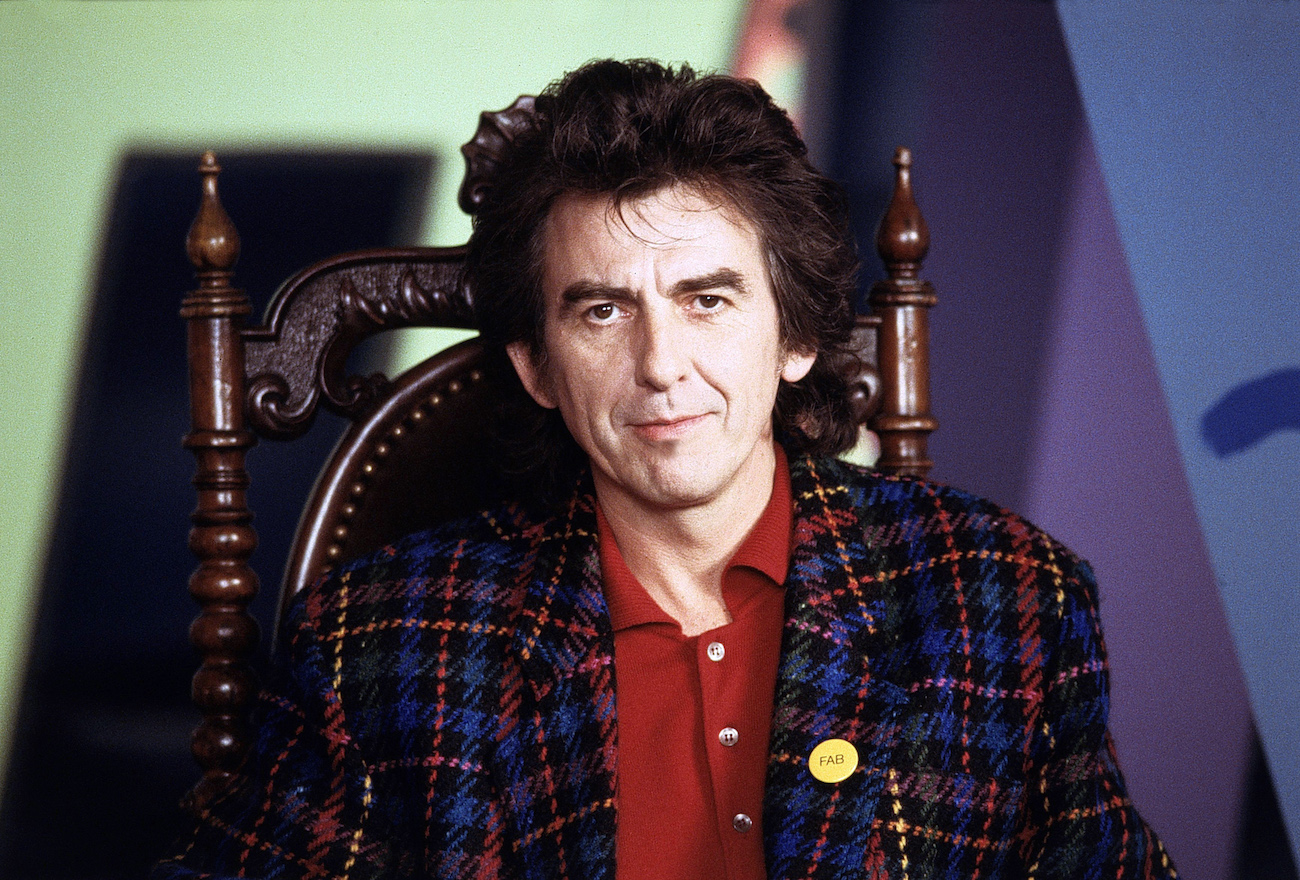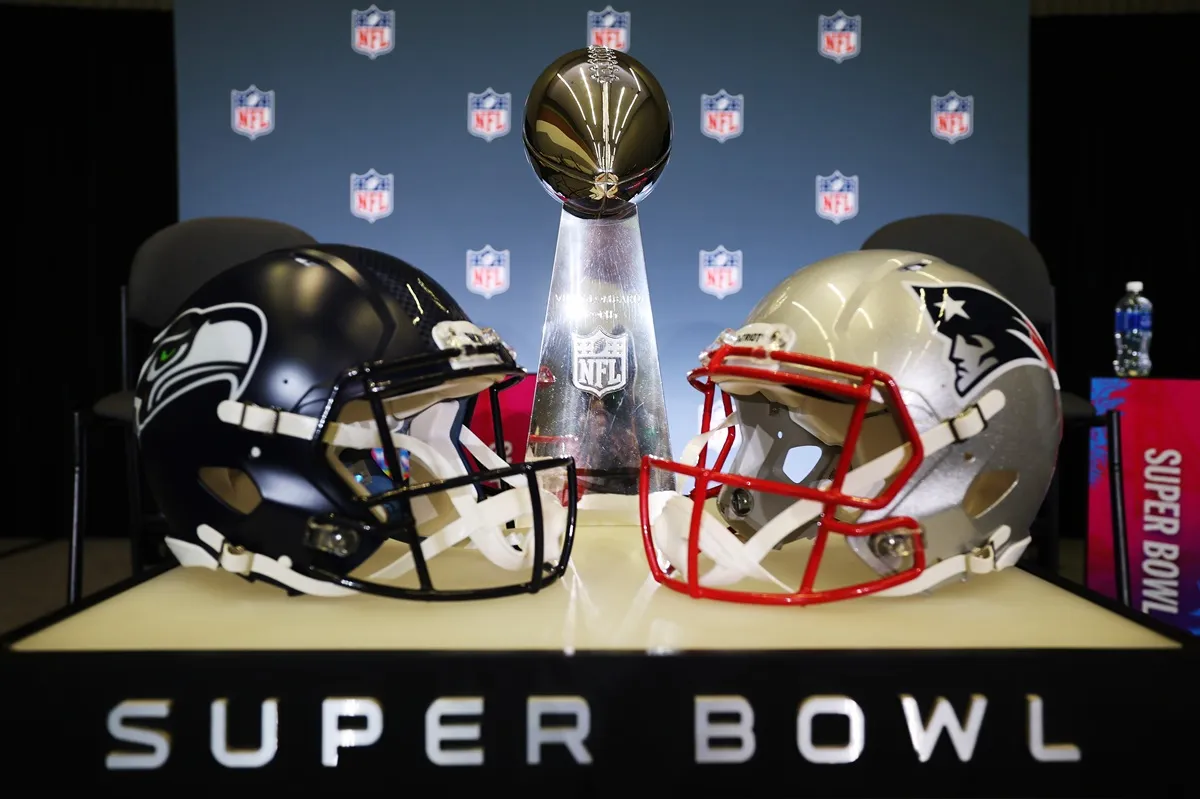
What a Film Had to Have to Get George Harrison to Sign on Without Reading the Script
If a film had one special thing, George Harrison usually green-lit it without reading the script. In 1978, George co-founded HandMade Films with his business manager, Denis O’Brien, to help fund Monty Python’s Life of Brian after EMI pulled out because of the film’s blasphemous subject. Then, suddenly, George began to make more films that couldn’t get off the ground.

One film catapulted George Harrison into the movie industry
In 1988, George told Film Comment that he’d gotten into the film industry “purely by accident.”
“An English company had backed out of the Monty Python film Life of Brian in preproduction,” George explained. “And the guys, friends of mine, asked me whether I could think of a way to help them get the film made. I asked Denis O’Brien, who had been my business manager since the end of ’73.
“After thinking about it for a week, he came back and suggested that we produce it. I let out a laugh because one of my favorite films is The Producers, and here we were about to become Bialystock and Bloom. Neither of us had any previous thought of going into the movie business, though Denis had a taste of it managing Peter Sellers and negotiating some of the later Pink Panthers films.
“It was a bit risky, I guess, totally stepping out of line for me, but as a big fan of Monty Python my main motive was to see the film get made.”
In Martin Scorsese’s documentary, George Harrison: Living in the Material World, Eric Idle joked that it was the most money anyone had ever spent on a movie ticket.
Suddenly, though, George’s friends started coming to him with more films. Then, he knew HandMade Films wasn’t a one-movie company. “Denis got a bug for it,” George continued. “And the pythons as individuals were all writing scripts. Terry Gilliam presented us with this brilliant idea, which turned into Time Bandits.
“Michael Palin had done a BBC-TV series, Ripping Yarns, a series of 30-minute films, and I once mentioned it to him that if he ever wanted to write a big Ripping Yarn it would be just great. So he did. He also made A Private Function, a hysterical little Alan Bennett film that did really well in England… Anyhow, one thing led to another, and our films just kept happening.”
A film had to have something special for George to sign on without reading the script
George spoke about HandMade Films’ upcoming movies during a 1988 interview with MTV. The company was making a film called How to Get Ahead in Advertising by Bruce Robinson, the same writer and director of another HandMade Films production, 1987’s With Nail and I. The film also had the same actor, Richard E. Grant.
George said it was a “very lunatic kind of film.” He told MTV, “It’s pretty weird, but it’s a brilliant little film.” With Nail and I was the kind of film where George didn’t need to read the script to know its potential.
“I think this guy Bruce Robinson, I think if he came to us with another screenplay, I’d tend to do it even without reading it because I think he’s fantastic. It’s just the nature of the person.”
So, if a film and its director wowed him, George wouldn’t hesitate to green-light it.
However, he added that he hated acting and had no interest in directing. “I don’t want that responsibility,” George said. “I don’t mind having a director and then suggesting a few things to him, I’m not really into directing, I think I’d much rather make records. It’s much simpler.
“You can make decisions so much quicker, there’s less people involved, you get an engineer and that’s it really. Get on a sound stage with a film crew; you’ve got about 60 people. It’s too much pressure.”
The former Beatle hated reading scripts
Most of the time, if a film wowed George or not, he didn’t like reading scripts. Although, he trusted one of his staffers and friends, Ray Cooper, to pinpoint which ones were good.
He told Film Comment, “There are so many scripts coming in now. And, personally, I hate reading them. But a guy on staff named Ray Cooper serves as my ears. He’s also a musician, a percussion-and-drums player for Elton John, and I know I can rely on his being sensitive to the artistic side of things.”
“There’s always a conflict between the ‘business,’ what people see as the brutal business aspect, and the ‘artistic’ side. Since I’ve been an ‘artist’—make sure you put that in inverted commas—and have Ray there all the time, it eases the problem a bit.
“If a couple of people on the staff all happen to like the same screenplay, then copies go out and everybody reads them and decides whether we’ll do it or not. I suppose Denis and I have the final say, but it’s rather a committee system. It takes a number of people to like a script before the red light turns to amber.”
Many more film scripts ran past George. Then, HandMade Films became another incredible chapter in George’s remarkable life.


